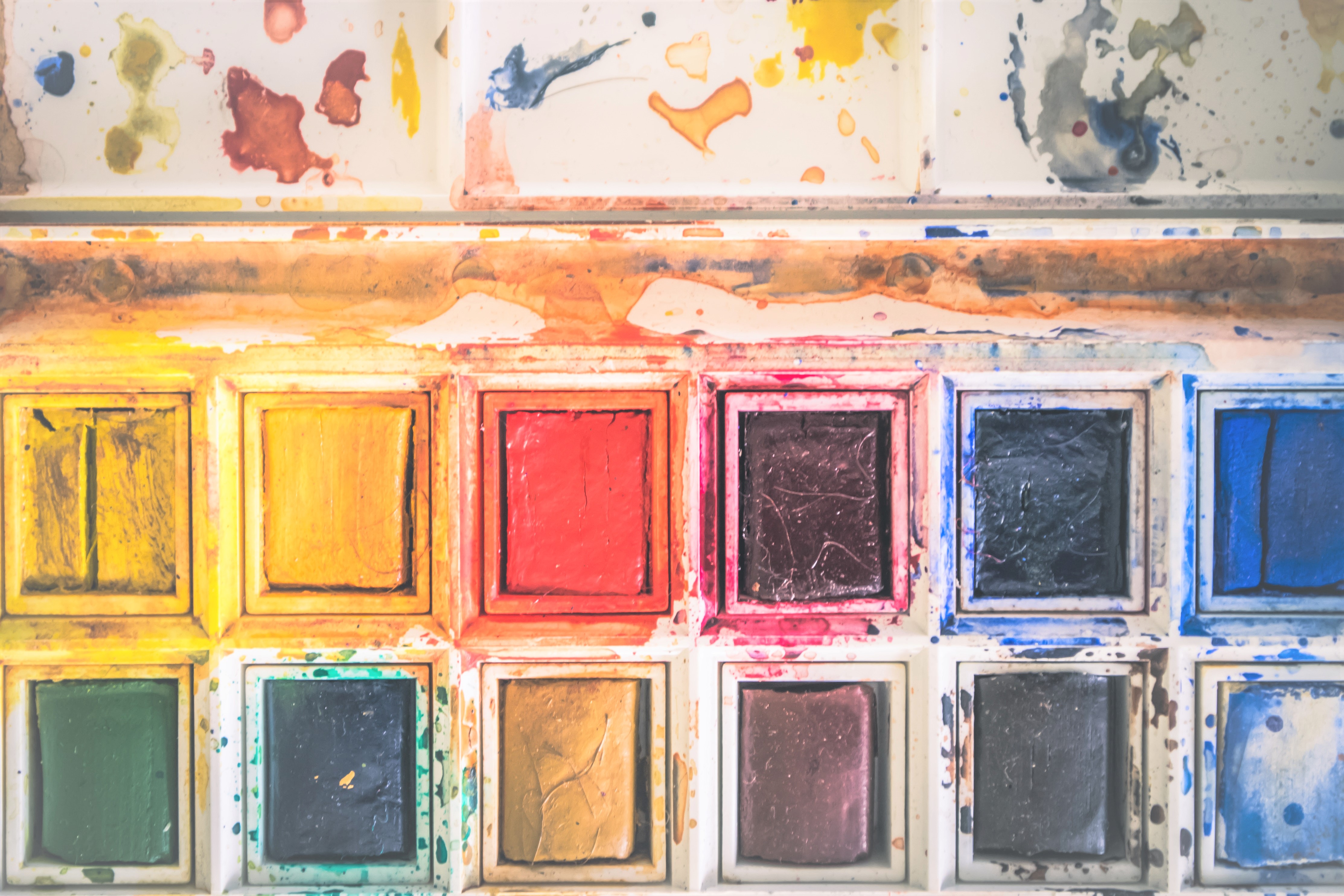Several years ago, I went to an evening of art and wine for ladies, where our host had arranged for us to make Jesse Tree ornaments. She had done the hard work of drawing all the art. Our job was fairly simple: we were to cut out the little drawings and glue them onto wooden ornaments.
Despite the kindergarten-level simplicity of the task, it was remarkably difficult to do perfectly. In fact, at one point she lamented that one of mine had been glued on crooked. I was frustrated at myself for messing up something so easy—but I had begun to work on letting go of perfectionism.
My response was that I knew it, but I wasn’t going to fix it. I forced myself to accept my mistake and move on. [Does it still bother me a little every year when we pull out the ornaments? You bet. But is it also a reminder to accept imperfection? Absolutely.]
Just recently I attended another kind of artsy workshop for women, this time to learn calligraphy. It’s something I’ve been wanting to do for a while, but have never tried. I wasn’t very good at it, and so spent the morning feeling like a first grader who is learning how to write basic letters. My “final project” looked like I hadn’t been able to implement almost any of what I had learned.
As one girl next to me bemoaned how bad hers looked, I found myself surprisingly serene. Was mine fairly terrible? Definitely. But why should I expect perfection, or frankly even goodness, when I had never tried it before?
As far as calligraphy goes, I am the equivalent of a first-grader. I don’t need to be upset about being terrible at something I’ve only tried once.
But that isn’t a mindset I would have been able to own in the past. Sure – I would have told myself I shouldn’t be upset. But I wouldn’t have actually been at peace. I would have silently berated myself for not doing it well enough, for not being an immediate child prodigy.
Perfectionism is a nasty habit that many of us assimilate in childhood and never really shake off. It isn’t merely a drive to do things well. It’s an inability to accept anything less than perfect, a way of being that doesn’t allow for progress.
It’s perfection or nothing. Hence, a lot of the time, it’s nothing.
Perfectionism prevents us from trying new things that we might not be good at it right away. It refuses permission to fail, and therefore, to grow, to learn from our mistakes. It’s tied to that nasty vice of pride that whispers that although others might have to learn things in stages, we would never deign to make such mistakes.
Perfectionism is harsh, and it’s harshest towards those of us who struggle with it. Perfectionists are always their own worst critic.
But there’s one thing we know about God. Although He is Perfect, He isn’t a Perfectionist.
God doesn’t expect us to be an immediate success at everything we try. If there’s anything we can learn from the Old Testament, it’s the story of God’s patience with a people who just can’t get their act together. (And that people is us: it’s all of our story.) Time and time again, He tries to lead them out of slavery – literal and figurative – and time and time again they just want to go back. It takes centuries for them – for us – to learn who God really is and the good that He wants for us.
If God, who is Perfect, isn’t a perfectionist, why should I be one? Why choose harshness and impatience over loving kindness and gentle waiting? Why demand something immediately that can only be gained in time?
Letting go of perfectionism doesn’t happen overnight. It’s still something I struggle with, but am slowly overcoming – one beginner art project at a time.
What about you? Do you struggle with perfectionism? How do you try to overcome it?





